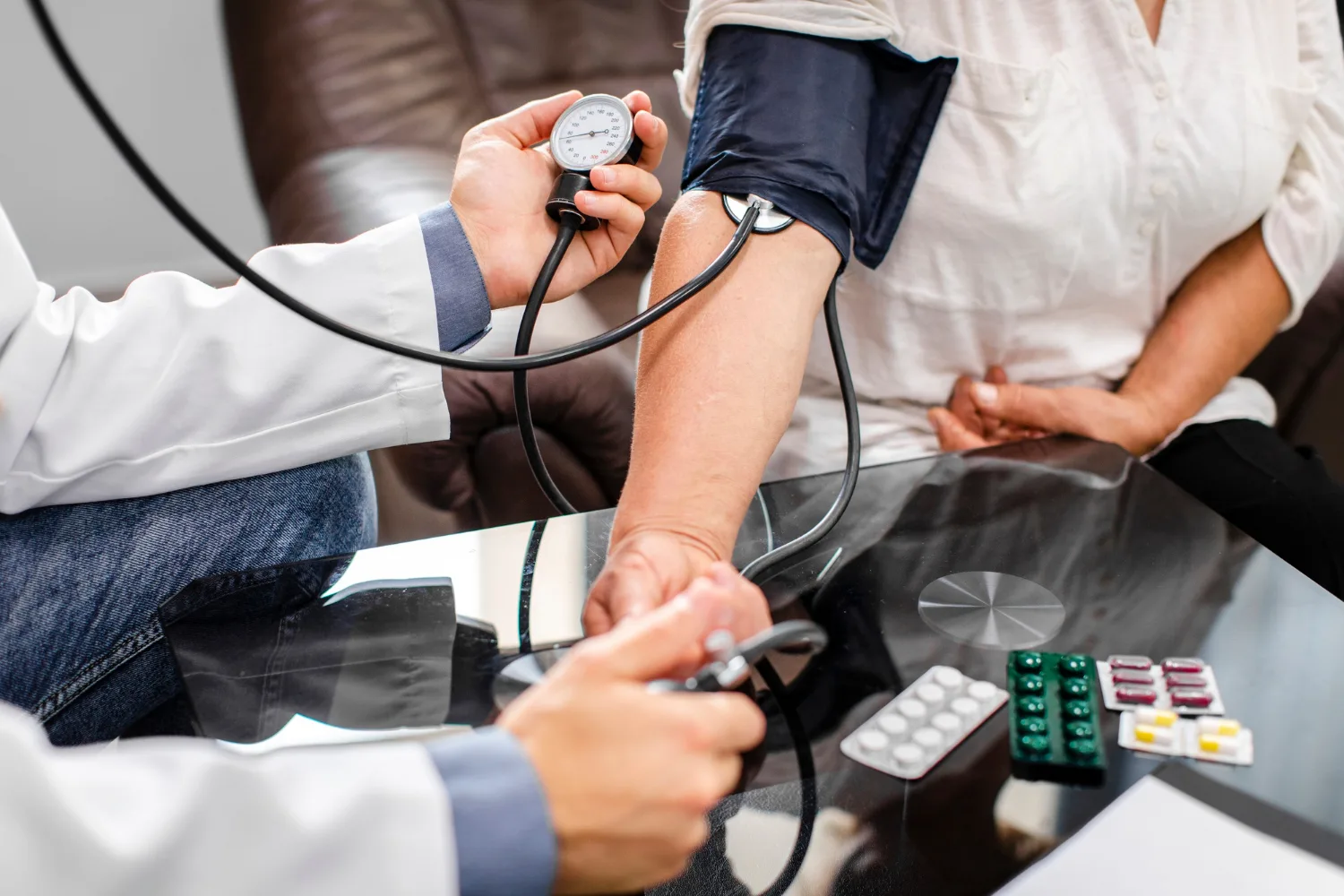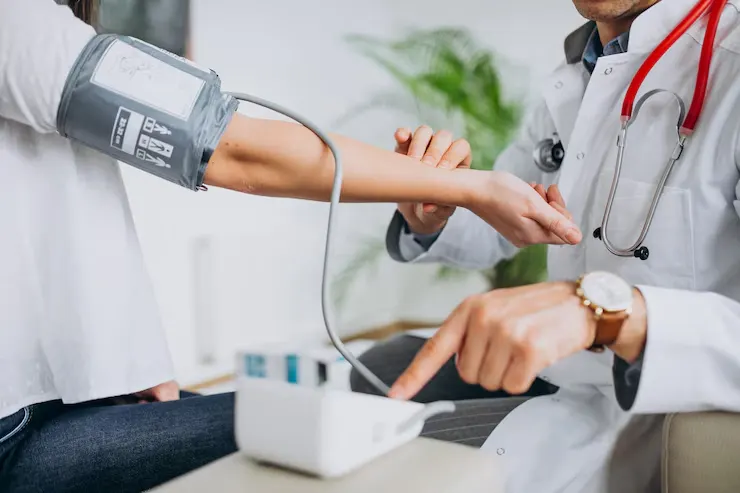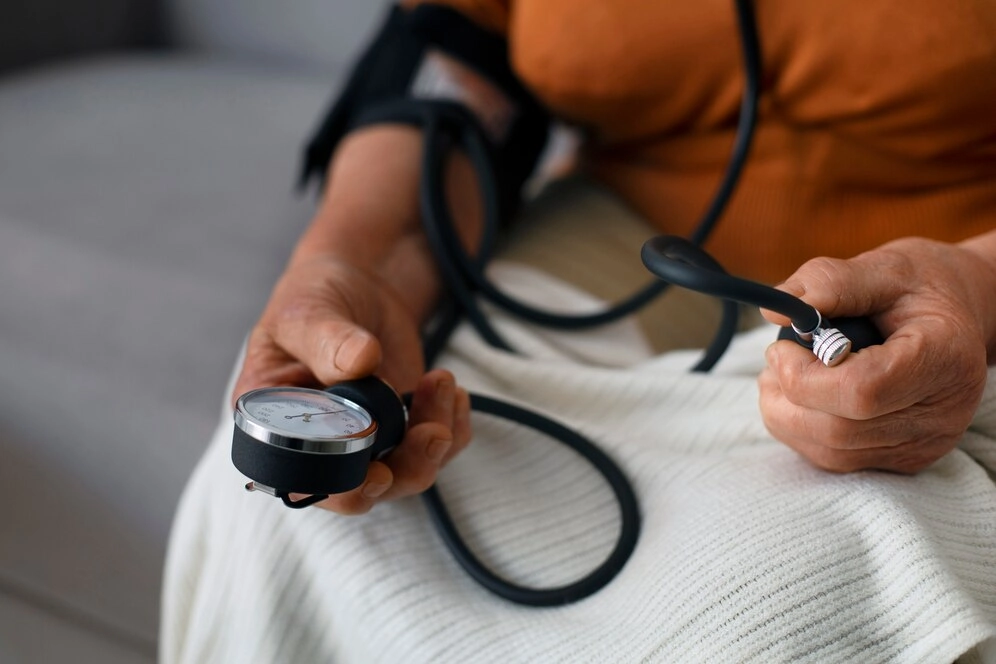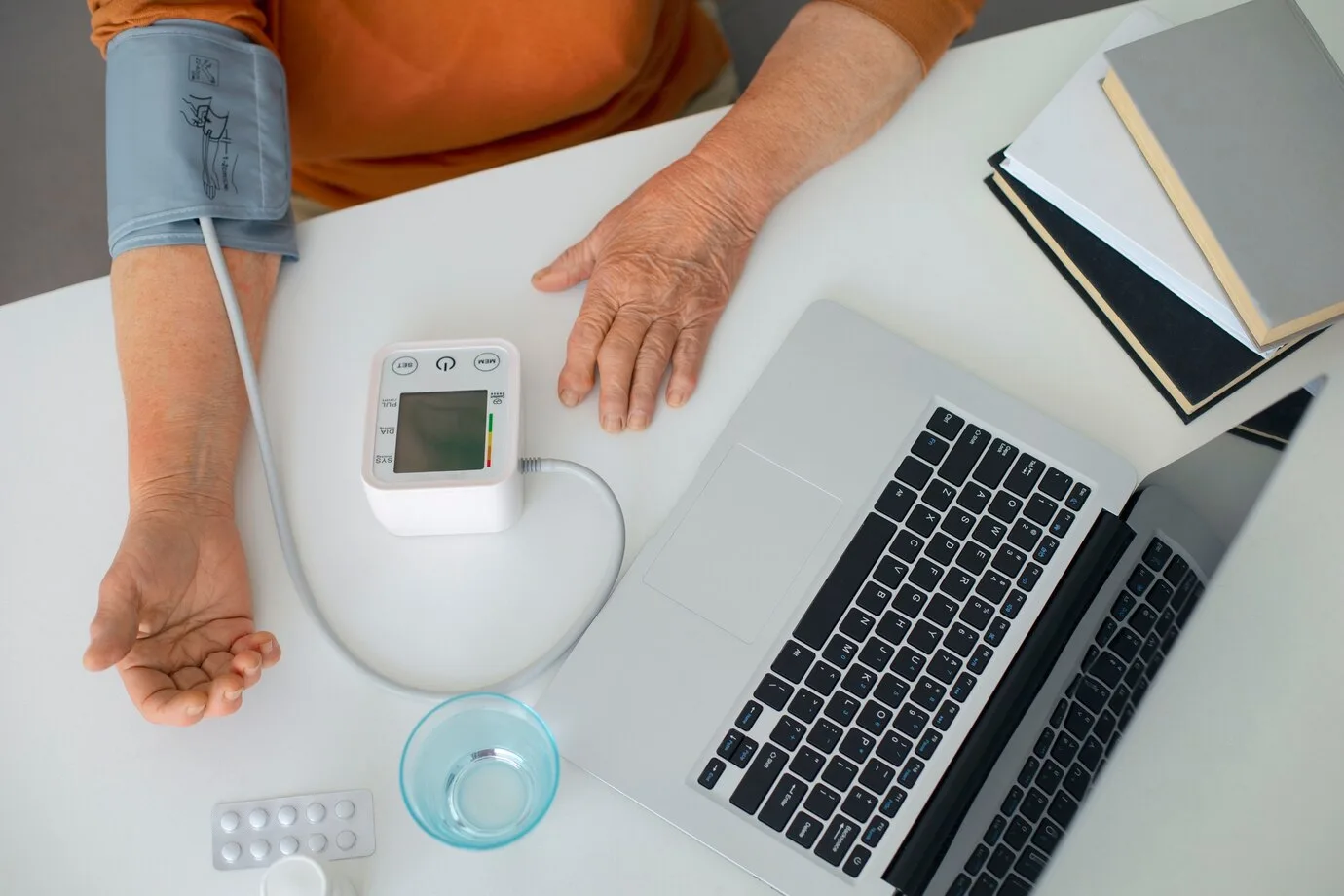How To Lower High Blood Pressure?
Category: Cardiology
High blood pressure or hypertension is a common health condition affecting millions globally and is a leading cause of heart disease and stroke. Managing and lowering high blood pressure is crucial to prevent serious health complications. This comprehensive guide explains effective ways to lower blood pressure, answers common user questions like why blood pressure rises, what steps to take, and when to seek medical help.
At Lokmanya Hospitals, recognized as one of the best hospitals for hypertension and cardiovascular care in Pune, we provide expert diagnosis, treatment, and ongoing management to help patients control their blood pressure and lead healthier lives. Our state-of-the-art facilities, advanced diagnostics, and multidisciplinary care ensure personalized treatment plans tailored to each patient's needs.
What Is High Blood Pressure and Why Is It Important to Lower It?
High blood pressure means the force of blood pushing against your artery walls is too high, which can strain your heart and damage blood vessels over time. If left uncontrolled, it increases the risk of heart attacks, strokes, kidney disease, and other serious complications.
You might ask:
- Why does high blood pressure develop?
It often develops due to a combination of genetic predisposition, unhealthy lifestyle habits, obesity, stress, and underlying health issues like kidney disease or hormonal imbalances. - When should I worry about high blood pressure?
Blood pressure consistently above 130/80 mm Hg is considered hypertension. If untreated, it silently damages organs without obvious symptoms. Regular monitoring is essential.
How To Lower High Blood Pressure: Practical, Proven Steps
Controlling high blood pressure involves a mix of lifestyle changes, medication (when necessary), and regular medical supervision. Here’s a detailed breakdown:
1. Adopt a Heart-Healthy Diet
Diet plays a vital role in managing blood pressure. The DASH (Dietary Approaches to Stop Hypertension) diet is recommended by health experts worldwide. It emphasizes:
- Fruits and vegetables: Rich in potassium, which helps balance sodium levels.
- Whole grains: Provide fiber that supports heart health.
- Lean proteins: Such as fish, poultry, and legumes.
- Limit salt (sodium) intake: Excess salt causes fluid retention, raising blood pressure. Aim for less than 2,300 mg daily.
- Reduce processed and sugary foods: These contribute to obesity and blood pressure spikes.
2. Maintain a Healthy Weight
Obesity is a significant risk factor for high blood pressure. Even a modest weight loss of 5-10% of your body weight can lead to measurable blood pressure reductions. Consult your doctor or a nutritionist for a sustainable weight loss plan.
3. Increase Physical Activity
Regular exercise strengthens your heart and improves blood flow. Aim for at least 150 minutes of moderate aerobic activity such as brisk walking, swimming, or cycling each week. Exercise also helps reduce stress and maintain a healthy weight.
4. Limit Alcohol Consumption
Drinking alcohol in excess can raise blood pressure and interfere with blood pressure medications. Limit intake to no more than one drink per day for women and two drinks for men.
5. Quit Smoking
Smoking damages blood vessels and raises blood pressure temporarily after each cigarette. Quitting smoking improves your overall cardiovascular health dramatically.
6. Manage Stress Effectively
Chronic stress causes temporary spikes in blood pressure and contributes to unhealthy habits. Incorporate relaxation techniques like meditation, deep breathing, yoga, or hobbies to lower stress.
7. Monitor Your Blood Pressure Regularly
Home blood pressure monitors help you keep track of your readings and see how lifestyle changes or medications are working. Share these readings with your doctor during visits.
8. Take Prescribed Medications as Directed
Sometimes lifestyle changes alone are not enough. Doctors may prescribe antihypertensive drugs tailored to your health condition. Never stop or adjust medication without consulting your healthcare provider.
Why Choose Lokmanya Hospitals for High Blood Pressure Treatment?
Lokmanya Hospitals is renowned as one of the best hospitals in Pune for cardiovascular and hypertension care. Our specialized Hypertension Clinic offers comprehensive care with expert cardiologists, nephrologists, dietitians, and physiotherapists working together. We use the latest technology for precise diagnosis, including ambulatory blood pressure monitoring and cardiac imaging.
Our approach goes beyond medication — we emphasize patient education, lifestyle modification, and personalized rehabilitation programs. Thousands of patients have benefited from our dedicated care, making Lokmanya Hospital a trusted name for managing and lowering high blood pressure.
Additional Tips for Long-Term Blood Pressure Control
- Regular Follow-Up: Schedule routine checkups to monitor your condition.
- Sleep Well: Poor sleep is linked to hypertension; aim for 7-8 hours of quality sleep.
- Limit Caffeine: Excess caffeine can cause temporary blood pressure spikes.
- Stay Hydrated: Drink enough water daily to support overall health.
- Educate Yourself: Understanding your condition empowers better management.
Conclusion
Lowering high blood pressure is achievable with the right combination of lifestyle changes, medical care, and consistent monitoring. It requires commitment and expert guidance, which Lokmanya Hospitals proudly offers as one of the best hospitals for cardiovascular and hypertension treatment in Pune.
If you or your loved ones struggle with high blood pressure, don’t wait. Consult Lokmanya Hospitals for expert care, advanced treatment options, and a compassionate approach to managing hypertension effectively.
FAQ
- Why Is My Blood Pressure Still High Despite Lifestyle Changes?
Some patients have resistant hypertension due to underlying conditions like kidney disease or hormonal disorders. Medications and thorough medical evaluation become necessary. At Lokmanya Hospitals, our expert team uses advanced diagnostics to find the root cause and customize your treatment. - When Should I See a Doctor for High Blood Pressure?
If your blood pressure readings consistently exceed 130/80 mm Hg or if you experience symptoms such as severe headaches, chest pain, vision changes, or shortness of breath, seek immediate medical attention. - What Are the Long-Term Risks If I Don’t Lower My Blood Pressure?
Uncontrolled hypertension increases the risk of heart attacks, strokes, aneurysms, kidney failure, and cognitive decline. Early and effective management reduces these risks substantially. - What foods should I avoid if I have high blood pressure?
Limit your intake of salt (sodium), processed foods, red meat, fried items, and sugary beverages. A heart-healthy diet like the DASH or Mediterranean diet is highly recommended. - How often should I monitor my blood pressure at home?
If you're diagnosed with hypertension, it's best to check your blood pressure at least once a day or as advised by your doctor. Regular monitoring helps track progress and detect issues early. - Can high blood pressure be cured permanently?
High blood pressure usually cannot be “cured,” but it can be effectively managed. With the right combination of lifestyle changes and medication, many patients maintain healthy blood pressure levels long-term.
Previous blog







